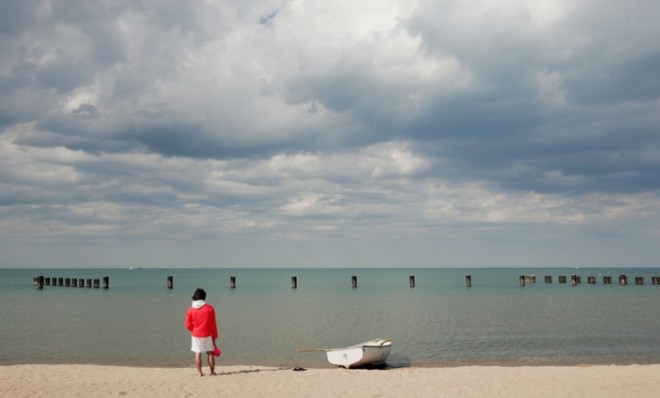Why the Great Lakes are shrinking
A new report says lakes Michigan and Huron are at their lowest water levels since 1918


The U.S. Army Corps of Engineers announced this week that two of America's Great Lakes, Lake Michigan and Lake Huron, are at their lowest water levels since recording began in 1918. The lakes were 29 inches below their long-term average, and down 17 inches since this time last year. "We're in an extreme situation," the Corps' Keith Kompoltowicz told USA Today.
The causes are threefold:
* Below-normal levels of rain and snowfall
The Week
Escape your echo chamber. Get the facts behind the news, plus analysis from multiple perspectives.

Sign up for The Week's Free Newsletters
From our morning news briefing to a weekly Good News Newsletter, get the best of The Week delivered directly to your inbox.
From our morning news briefing to a weekly Good News Newsletter, get the best of The Week delivered directly to your inbox.
* Record-high temperatures
* Dredging (the process of deepening navigational channels by removing layers of the bottom sediments)
Why should we be concerned? First of all, the Great Lakes store 84 percent of the nation's freshwater, so their decline should be cause for some alarm. Second, "a long-term decline in water levels threatens coastal habitats, especially wetlands," says Robert Glennon at the Detroit Free Press. Plus, lower water levels are bad for the local economy. For every inch the water level falls, cargo ships have to lighten their loads an average of 100 tons to avoid running aground. This dramatically boosts the costs of shipping.
Researchers are eager to find a way to prevent water from leaving the lakes. One option: Tightening regulations on groundwater pumping, which sucks up runoff that feeds the lakes. "The state can't control precipitation, but it can control diversions from streams and pumping from wells that reduce flow into the Great Lakes," says Glennon. The Army Corps has suggested placing "speed bumps" in the surrounding rivers to slow down lake drainage, which could be put in place over the next few years. But what the lakes really need is several consecutive years of above-average rain and snowfall — and there's no magic wand for that.
A free daily email with the biggest news stories of the day – and the best features from TheWeek.com
Jessica Hullinger is a writer and former deputy editor of The Week Digital. Originally from the American Midwest, she completed a degree in journalism at Indiana University Bloomington before relocating to New York City, where she pursued a career in media. After joining The Week as an intern in 2010, she served as the title’s audience development manager, senior editor and deputy editor, as well as a regular guest on “The Week Unwrapped” podcast. Her writing has featured in other publications including Popular Science, Fast Company, Fortune, and Self magazine, and she loves covering science and climate-related issues.
-
 Grok in the crosshairs as EU launches deepfake porn probe
Grok in the crosshairs as EU launches deepfake porn probeIN THE SPOTLIGHT The European Union has officially begun investigating Elon Musk’s proprietary AI, as regulators zero in on Grok’s porn problem and its impact continent-wide
-
 ‘But being a “hot” country does not make you a good country’
‘But being a “hot” country does not make you a good country’Instant Opinion Opinion, comment and editorials of the day
-
 Why have homicide rates reportedly plummeted in the last year?
Why have homicide rates reportedly plummeted in the last year?Today’s Big Question There could be more to the story than politics
